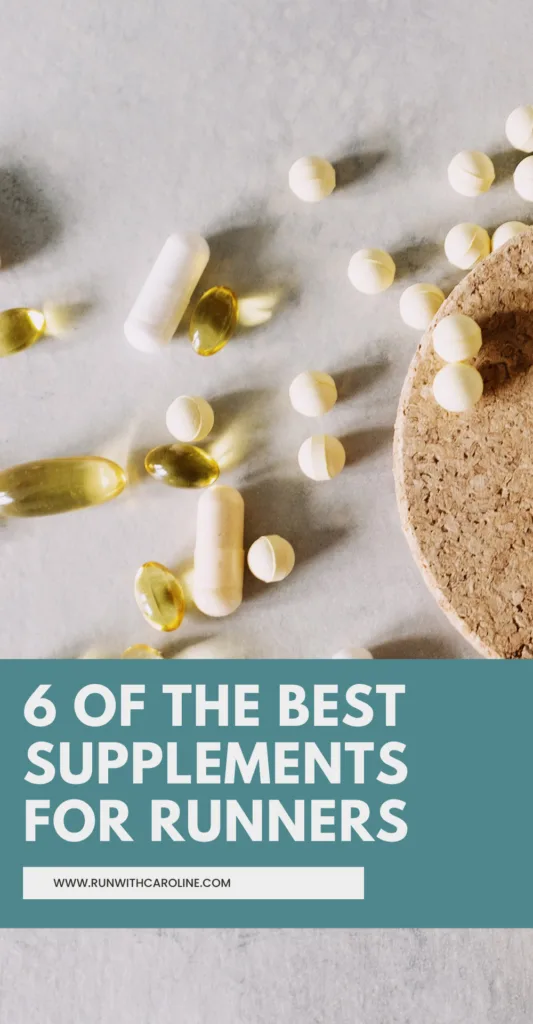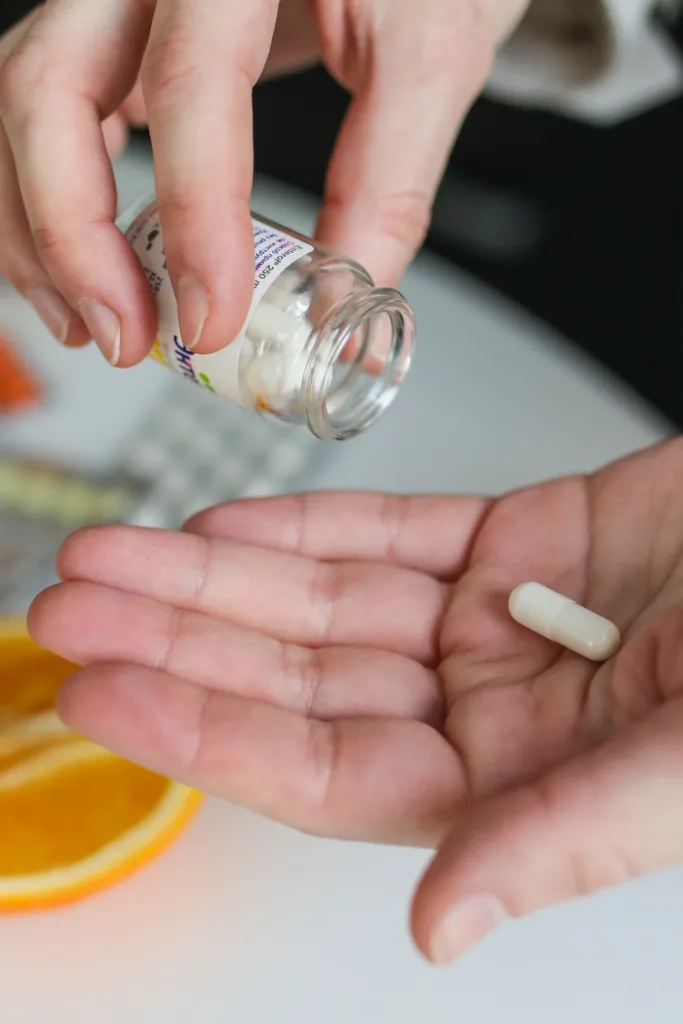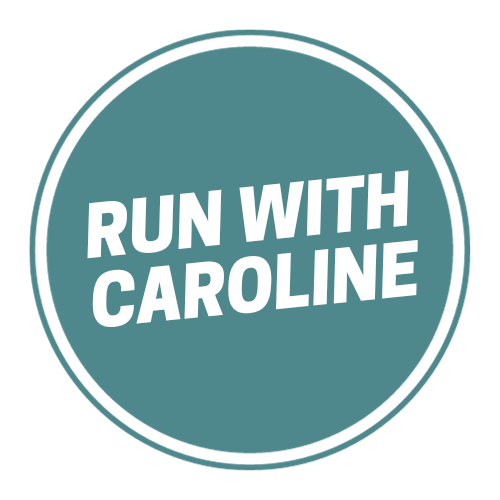Running is physically demanding.
In between exercise, work and family life, it can be challenging to eat a well-balanced diet and maintain optimum health.
Many runners need a helping hand when it comes to getting their daily dose of essential vitamins and minerals.
Supplements for runners are a great way to offset any nutritional deficiencies.
When taken as part of a healthy, balanced diet, they are a powerful way to improve athletic performance.
But what exactly are the best supplements for runners? What are their benefits? And how often and when should you take them?
In this guide we’ll look at:
- What are supplements?
- Tips for taking supplements
- 6 of the best supplements for runners
- Other supplements to mention
Ready?
Let’s go!

What are supplements?
Supplements (often referred to as dietary supplements) are products that contain numerous ingredients in varied combinations and amounts.
Typical ingredients include vitamins, minerals, protein, botanicals, herbs, fish oils, amino acids, creatine and enzymes.
Popular ingredients include vitamins D and B12, minerals like calcium and iron, herbs such as echinacea and garlic and products like glucosamine, probiotics and omega-3 fish oils.
Dietary supplements come in a variety of forms, including:
- Tablets
- Capsules
- Gummies
- Powders
- Drinks
- Energy bars
According to research from the Centers for Disease Control and Prevention (CDC), more than half of all American adulta use supplements on a regular basis.
Sports nutrition supplements in particular have become increasingly popular over the last decade.
According to one study, sports nutrition supplements and related nutrition products totalled $5.67 billion in 2016.
This was nearly 15% of the total sales for dietary supplements.
The bottom line? Supplements are a billion dollar industry and there is no sign of them going away anytime soon.
When used in the right way, they support overall wellness goals.
They provide nutrients that you can’t get from your diet and increase your levels of nutrients if you have deficiencies.
Related: What does it mean to be fat protein efficient?

Tips for taking supplements
If you’d like to start taking supplements but don’t know where to start, here are some tips.
#1 Focus on a healthy, well-balanced diet first
Before we jump into the best supplements for runners, be mindful that supplements are designed to be additions to your diet.
Popping pills is not the answer to good health! And not the cheapest either.
You should eat a well-balanced diet and take supplements to fill any nutritional gaps.
Try to increase the amount of essential vitamins and minerals in your diet first.
#2 Your supplement needs will depend on your own unique set of requirements
Be mindful that the supplements recommended for you will depend on a variety of factors.
Your age, gender, medical history, diet, training status and health and fitness goals will all determine the types of supplements you may need.
#3 Consult with a medical professional before taking any supplements
If you’re looking to start taking supplements but have questions, then speak to a medical professional.
Always consult with your health care provider before taking supplements if you plan to treat a health condition.
This is because some supplements should not be taken with certain conditions.
Some supplements can also interact with some medicines in ways that may cause problems.
Many supplements can also have strong effects on the body and should not be taken before major surgery, for example.
You are more likely to experience side effects if you take them at higher doses or instead of prescribed medicines.
Get your health care provider’s approval before taking supplements in place of, or in combination with, prescribed medicines.
#4 Check the supplement’s information leaflet
Before taking any supplement, use the information leaflet provided to understand its potential benefits and risks.
You’ll also want to check how, when and for how long you should take the supplement for.
Each supplement will have a Recommended Daily Allowance (RDA), Adequate Intake (AI) and Tolerable Upper Intake Level (UL).
These levels are tailored to women, men and specific age groups so always check the information leaflet.
Related: The best protein food for runners: What you should know about protein

The best supplements for runners
Now you know more about supplements and their benefits, here are the best supplements for runners.
#1 Iron
Iron is an essential mineral and a key component of hemoglobin and myoglobin which both play a key role to transfer oxygen around the body.
If you are iron deficient, your body’s oxygen-carrying capacity and muscle function becomes impaired.
Iron deficiency also limits your ability to exercise and be active.
One study found that symptoms of iron deficiency in runners include fatigue, lower aerobic capacity and slower times in performance trials.
Teenage girls and premenopausal women are at increased risk of iron deficiency.
This is because women and girls require more iron than men because they lose considerable iron due to menstruation.
Vegan and vegetarian runners are also at risk of iron deficiency because the richest sources of heme iron include lean meats and seafood.
Vegetables, nuts and beans are also good sources of plant-based iron (also called non-heme iron).
However, iron from animal meats is the richest and most readily absorbed.
Athletes lose additional iron because physical activity produces acute inflammation that reduces iron absorption from the gut and iron use via a peptide called hepcidin.
Iron is also lost through sweat when you exercise.
In addition, athletes are also susceptible to ‘foot strike hemolysis’.
Also known as ‘runner’s anaemia’, this is when red blood cells are destroyed as they pass through the foot from the repetitive pounding of running.
It’s worth noting that you have to do a lot of running in order for this to happen.
#2 Calcium and Vitamin D
Consuming enough vitamin D and calcium is important for bone health in everyone, not just runners.
Adequate vitamin D is needed for efficient calcium absorption.
They work together to prevent and treat osteoporosis and also play a key role in muscle movement, nerve communication, immune system responses and blood vessel flow.
According to John Hopkins Medicine, your recommended daily allowance (RDA) of calcium and vitamin D will depend on your age.
Adding that either form of vitamin D (D2 or D3) benefits the body, but very few foods naturally contain the nutrient or are fortified with it.
This is why vitamin D supplements are recommended to make up the difference.
Foods containing vitamin D include cod liver oil, oily fish, shitake mushrooms and egg yolk.
Calcium is found in dairy products, kale, broccoli, fortified cereals, tofu and fortified fruit juices.
#3 B vitamins
B vitamins are essential for a range of functions in the body and help to combat the stress generated by physical activity.
They work to convert carbohydrates and proteins into energy and play a key role in cell production and repair.
B vitamins are also involved in hormone production, creating new blood cells and helping to deliver amino acids to the muscles to help rebuild muscle.
Vitamin B12 (cobalamin) in particular is an essential nutrient for athletes and helps to build muscle mass and improve endurance, oxygen delivery and energy production.
Vitamin B12 can be found in fish, poultry, meat, eggs and dairy.
Miso, seaweed, fortified cereals and enriched soy or rice milk are also good sources of B12 if you are vegetarian or vegan.

#4 Magnesium
For runners, magnesium plays an important role in post-run muscle recovery.
Magnesium helps to regulate muscle and nerve function, blood sugar levels and blood pressure.
It also plays a key role in preventing muscle cramping.
Magnesium is naturally found in leafy green vegetables such as spinach and kale, whole grains, nuts, seeds and fortified cereals.
According to the NHS, the recommended daily intake of magnesium for adults, aged 19-64, is 300 mg a day for men and 270 mg a day for women.
Studies show that the more you exercise, the more your need for magnesium increases.
If you are magnesium deficient, this may lead to inefficient energy metabolism and decreased endurance.
A higher intake of magnesium has been shown to be associated with less oxygen needs and better cardiorespiratory indices.
#5 Zinc
Zinc is a mineral that plays a key role in many of the body’s normal functions.
It metabolises nutrients, maintains your immune system and grows and repairs body tissues.
Your body’s ability to heal wounds, form blood clots and your sense of smell and taste are also influenced by zinc.
According to research, an excessive increase in carbohydrates and low intake of protein and fat may lead to suboptimal zinc intake in 90% of athletes.
Zinc deficiency in athletes can lead to significant weight loss, fatigue and decreased endurance.
Good sources of zinc include red meat, shellfish, legumes, nuts, seeds, dairy, eggs, wholegrains and dark chocolate.
#6 Ashwagandha
Ashwagandha is an Ayurvedic herb and popular medicinal plant used in South East Asia and Southern Europe.
The herb is known for its ability to increase vitality, energy, endurance and stamina and strengthen the immune system.
In 2015, a study was conducted looking at the effects of ashwagandha on endurance in healthy athletic men and women.
The study found that people who received the root extract of ashwagandha had a significant increase in physical endurance after 8 to 12 weeks compared with the participants receiving the placebo.
Related: 6 healthy smoothie recipes for runners to optimise recovery

Other supplements to mention
There are some supplements that are popular in the fitness community but are not always suitable for endurance athletes like runners.
#1 Caffeine
When taken before physical activity, research has found that caffeine may enhance performance in endurance-type activities like running.
The research also found that caffeine may enhance performance in intermittent, long-duration activities like soccer.
The downside is that heavy caffeine use may diminish rather than enhance physical performance.
Adverse side effects include insomnia, irritability, anxiety, restlessness and nausea.
#2 Creatine
Creatine is one of the most thoroughly studied and widely used supplements to enhance sports performance.
However, creatine supplementation is of little value for endurance sports such as distance running as these do not rely on the anaerobic (ATP-creatine) energy system to provide short term energy.
Aerobic exercise like running relies primarily on the aerobic energy system which does not require creatine.
If you do any form of strength training, however, then research tells us that short term creatine supplementation can significantly increase strength and power.
In one study, in particular, 18 well-trained male sprinters aged 18 to 24 years improved their performance in both the 100m and 60m sprint events by taking 20g of creatine each day for 5 days, compared with the placebo group.
In another study, 14 female collegiate soccer players experienced greater increases in muscle strength by taking 15g of creatine each day for 1 week and then 5g each day for 12 weeks, compared with the placebo group.
Related: Carb loading for runners: Foods to eat and mistakes to avoid
- 5 things I wish I’d known before returning to running - March 3, 2024
- Running 20 minutes a day: Benefits + how to start - January 27, 2024
- How to run your first 2 hour half marathon - January 16, 2024
